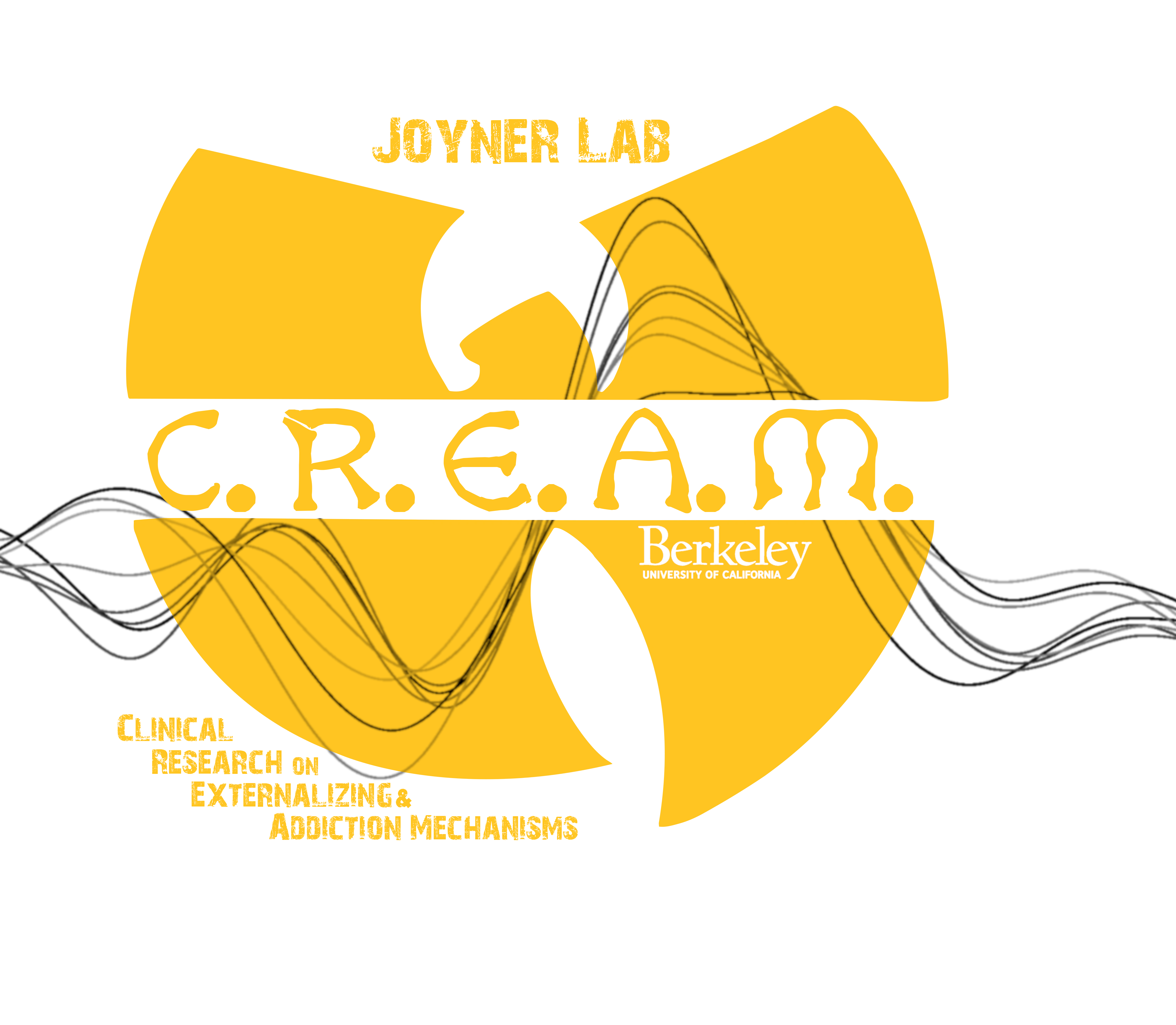Joyner Lab
Clinical Research on Externalizing and Addiction Mechanisms

The C.R.E.A.M. (Clinical Research on Externalizing and Addiction Mechanisms) Lab at the University of California, Berkeley focuses on disturbances in cognitive-affective processes across time that give rise to the emergence of substance use disorders (SUDs) and other forms of externalizing psychopathology. Our lab group typically focuses on some combination of three general areas in pursuit of the mechanisms of risk for addiction: (1) Understanding dispositional trait liabilities promotive of addiction, particularly as concerns the interplay between disinhibition and reward sensitivity, (2) bridging between- and within-subject mechanisms of risk for problematic consumption using ambulatory assessment techniques, and (3) evaluating and improving the generalizability and applicability of models of addiction to minoritized and socioeconomically-disadvantaged populations. To do this work, we use human neuroscientific methods (primarily electroencephalogram/event-related potentials [EEG/ERPs]), ambulatory assessment techniques (such as ecological momentary assessment), biometric (behavioral genetic) analyses, and a variety of statistical modeling approaches.
And in case it wasn’t obvious from the logo, yes, the lab name is a reference to the legendary hip-hop group, the Wu-Tang Clan! We are serious about our science, but also like to have fun around here too.